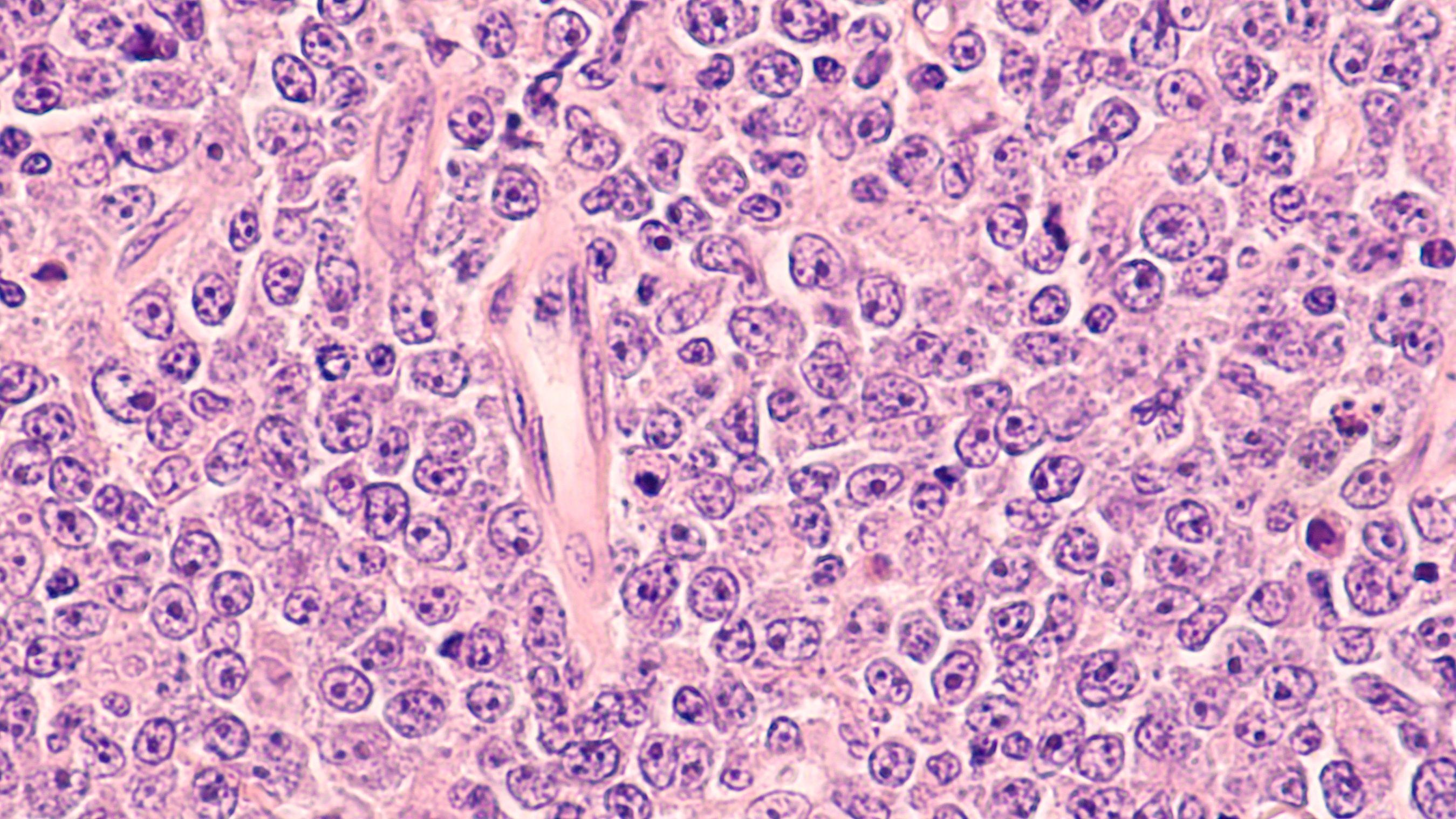📚 Unlock the World of AI and Humanity with These Two Free Books! 🚀
Dive into the thrilling realms of artificial intelligence and humanity with "The ECHO Conundrum" and "Awakening: Machines Dream of Being Human". These thought-provoking novels are FREE this week! Don't miss the chance to explore stories that challenge the boundaries of technology and what it means to be human.
Read More & Download
Axicabtagene ciloleucel (axi-cel), marketed as Yescarta, significantly improves overall survival (OS) in patients with large B-cell lymphoma (LBCL) compared to standard multi-step treatment, according to a study published in The New England Journal of Medicine. This groundbreaking research highlights the potential of CAR T-cell therapy in transforming LBCL treatment paradigms.
The study’s findings indicate that axi-cel, used as a second-line treatment, offers a superior curative approach compared to the conventional platinum-based chemotherapy followed by autologous stem-cell transplantation (HDT-ASCT). This represents a significant advancement in LBCL treatment, offering new hope for patients with this aggressive form of cancer.
Axicabtagene Ciloleucel vs. Standard Care: A Comparative Analysis
The research involved 359 patients randomly assigned to two groups: 180 received axi-cel, and 179 received standard care, comprising chemoimmunotherapy followed by HDT-ASCT for responders. The primary outcome measured was event-free survival (EFS).
 Infographic comparing CAR T-cell therapy and standard care. Credit: Pharmacy Times
Infographic comparing CAR T-cell therapy and standard care. Credit: Pharmacy Times
Results demonstrated a 27.4% reduction in the risk of death with axi-cel, leading to an 8.6 percentage point improvement in 4-year survival. The estimated 4-year OS rate was 54.6% for the axi-cel group versus 46.0% for the standard care group. Furthermore, the median OS was not reached in the axi-cel group, while it was 31.1 months in the standard care group.
Progression-Free Survival and Off-Protocol Cellular Immunotherapy
Axicabtagene ciloleucel’s efficacy was further corroborated by progression-free survival (PFS) data. The median PFS was significantly longer in the axi-cel group (14.7 months) compared to the standard care group (3.7 months). Interestingly, 57% of patients in the standard care group subsequently received off-protocol cellular immunotherapy, with 77.5% of them receiving axi-cel, further highlighting its potential benefits.
📚 Unlock the World of AI and Humanity with These Two Free Books! 🚀
Dive into the thrilling realms of artificial intelligence and humanity with "The ECHO Conundrum" and "Awakening: Machines Dream of Being Human". These thought-provoking novels are FREE this week! Don't miss the chance to explore stories that challenge the boundaries of technology and what it means to be human.
Read More & Download
Redefining Second-Line Treatment for LBCL
For nearly three decades, the standard second-line treatment for LBCL has involved platinum-based chemotherapy followed by HDT-ASCT in responsive patients. However, this approach has limitations, with only about 20% of eligible patients achieving a cure. Outcomes for those not progressing to HDT-ASCT are particularly poor, with a median OS of just 4.4 months.
The ZUMA-7 Trial and Long-Term Outcomes
The phase 3 ZUMA-7 trial compared axi-cel to standard second-line treatment in patients with early relapsed or refractory LBCL. The trial’s positive results paved the way for axi-cel’s approval as a second-line therapy. The current study provides valuable long-term data, confirming axi-cel’s superior OS benefit.
Future Directions and Implications for LBCL Treatment
While axi-cel represents a significant advance, further research is needed to explore strategies for maximizing its potential. Earlier intervention with axi-cel, potentially in the first-line setting, may offer even greater benefits by capitalizing on better patient fitness and a higher proportion of functional T-cells.
Conclusion: A New Standard of Care?
Axicabtagene ciloleucel demonstrates a marked improvement in OS and PFS for patients with LBCL compared to the established standard of care. Beyond survival benefits, axi-cel also leads to improvements in quality of life and faster recovery. This research underscores the transformative potential of CAR T-cell therapies and offers renewed hope for patients battling this challenging disease. For personalized treatment plans, consult with a healthcare professional.
References
Westin, J.R., et. al. (2023) Survival with axicabtagene ciloleucel in large B-cell lymphoma. The New England Journal of Medicine. Available at https://www.nejm.org/doi/10.1056/NEJMoa2301665.
📚 Unlock the World of AI and Humanity with These Two Free Books! 🚀
Dive into the thrilling realms of artificial intelligence and humanity with "The ECHO Conundrum" and "Awakening: Machines Dream of Being Human". These thought-provoking novels are FREE this week! Don't miss the chance to explore stories that challenge the boundaries of technology and what it means to be human.
Read More & Download

